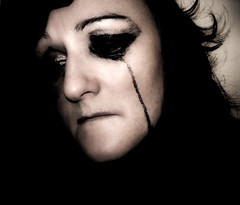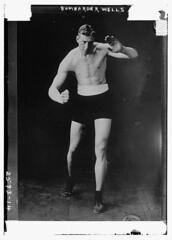
Barbara’s Story
Barbara is a former client from Florida. She is a charming, sophisticated, and intelligent woman in her mid-sixties. Several years ago, Barbara’s husband passed away. At the time of his death, she had been married to him for nearly forty years. When she called to arrange a series of telephone consultations, she was certain that she had completed her grieving over her husband’s death and that it was no longer an issue in her life.
Hidden Residual Grief
When Barbara had her first consultation over the phone some weeks later, I could see that the energy from his death still lingered in her chest and heart. Accordingly, I directed her attention to her chest area and asked her to make guttural sounds as if they were coming out of her heart. When she started to make these non-verbal sounds, I directed the healing energy pouring out of my hands over the phone into her chest. After a few minutes of making half-hearted grunts and sighs and getting nowhere, she wanted to stop. She complained that making these sounds just wasn’t lady-like, and didn’t feel right.
Feeling Uncomfortable
“Barbara,” I said gently, “there’s no one here but you and me, and it’s okay to feel uncomfortable. It really is. You don’t have to be a lady in this context, just someone who wants to heal her life and stop her pain. No one feels very comfortable when they’re stirring up their toxicity anyway. For the first time you’re stepping out of the box you’ve been trapped in your whole life. Give yourself a chance to succeed. You’ll like how success feels, I promise.”
“Okay,” she said cautiously. “I’ll give it another shot. But how long do I have to make the sounds for?” She was still obviously in resistance.
From Resistance to Ignition
“Until a wall inside you breaks,” I replied, “and the toxic material that has been sealed off behind that barricade pours out of you. Then you won’t have to force the sounds anymore. You won’t have to make yourself grunt, sigh, and scream. You’ll just erupt. Your unconscious material will rise to meet your conscious mind. In all real healing, the subconscious mind and the conscious mind temporarily become one. When that happens, your conscious mind will be unable to censor and repress your unconscious pain. As the conscious mind and the unconscious material become joined, the pain will just pour out of you until it no longer exists. When the two become one, your toxicity will be ignited. After you complete that specific layer, your conscious and unconscious will separate and return to their normal stations. Only you will be freer, more balanced, and filled with more light.”
“That last part is what I’m after. How long will it take before that happens?”
“No one really knows. Hopefully, not long. But it certainly isn’t going to happen while we’re talking and you’re not making the sounds I have asked you to make. Do you think you can go forward now?”
A Necessary Eruption
“Yes,” she answered resolutely. We were lucky that first day. The blockage in her heart proved to be very mobile, and it broke easily. Within a matter of minutes the pain rose out of her chest and into her throat. As the toxic energy burst out of its hiding place, the painful emotion it contained flooded her conscious mind. She was no longer in control of herself. What needed to come out of her was stronger than her capacity to control it. She broke down and cried uncontrollably for the rest of the session.
At the end of the session, Barbara noted that this was awfully hard work. She was hoping to feel better, not worse, as she did now. I told her not to worry about how she felt. That was temporary and would pass. The important thing for her to focus on was what had just happened. The toxicity had surfaced, broken, and poured out of her system. Many layers of grief had been cleared in an hour. That was most impressive.
Processing Grief
“Processing grief is always hard work,” I said. “Nothing about it is easy. No one wants to feel the pain it brings up, and besides, the energy of grief itself is very heavy. That’s why processing the psychic weight of grief is exhausting. For the next few days you can expect to feel a bit low and tired. The healing energy I channeled into your body is extremely potent and will continue to work on you for several more days. Don’t be surprised if you cry and clear more toxic emotion between sessions. That’s normal in this work. You’ll feel better in a few days.”
Her next appointment was a week later. When she called in she reported that she had indeed felt depressed and tired, and had cried for a few days after our first session. I asked her how she felt today. She replied that for the last two days she had been feeling really good and much, much lighter, but now she was afraid to do another session because she didn’t want to feel bad again.
I said that I didn’t blame her for feeling that way.
“No one likes feeling low,” I continued, “but the thing to remember is that every time you go through a cleansing experience, and work your way through un- conscious toxic emotion, you will tend to feel a bit depleted. Feeling that way is a sign that real healing has taken place. When you recover you will feel lighter, freer, and more energized than before. That’s just how the healing process goes. Every layer you peel away opens the way to more inner light, connects you more to your real self, and restores you to more of your personal power. You go through a little to gain a lot. You suffer some sadness and exhaustion that is short-lived, but you gain a happiness and clarity that will be long-lived. As you move forward, your highs will become higher, and your lows will also become higher.”
Please Like and Share. Thank you.











